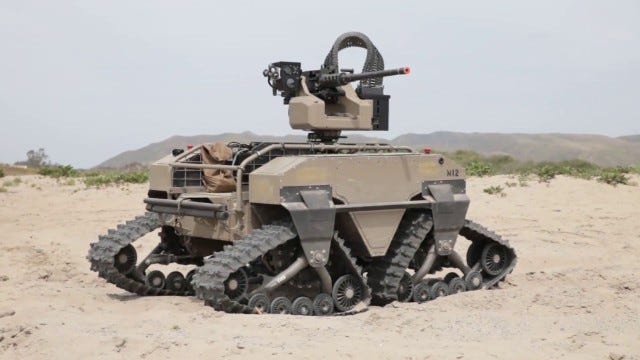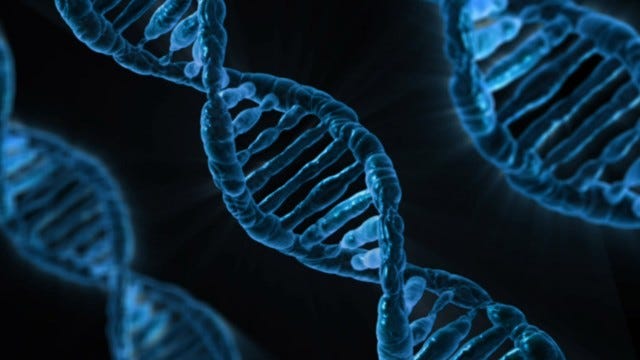Issue #170 - Apple's self-driving car had an accident; no consensus on killer robots; how we will benefit from sequences our genes
View this email in your browser
This week - Apple's self-driving car had an accident; no consensus on killer robots; first genetically modified mosquitoes to be released in Africa; how we will benefit from sequences our genes; is AI the end of understanding in science; and more news and articles on transhumanism, robotics, AI and biotech!
MORE THAN A HUMAN
Transfelinism
Who said only humans can be augmented? Transfelinism is the science-based social movement that seeks to transcend feline biological limitations via technology.
This Brain Machine Interface Turns Your Thoughts into Movements
CTRL-labs’s smart bracelet reads your motor neuron impulses allowing you to control devices with your mind.
ARTIFICIAL INTELLIGENCE
Could Machine Learning Mean the End of Understanding in Science?

In January this year, researchers used machine learning to accurately predict the outcome of a chaotic system over a much longer duration than had been thought possible. And the machine did that just by observing the system’s dynamics, without any knowledge of the underlying equations. When applied to science, AI can give answers to questions we cannot answer yet. But would these answers allow us to understand why things are happening the way they do? Are we going to end up with AI oracles that give answers but no explanations?
ROBOTICS
US, Russia block consensus at 'killer robots' meeting

A key opponent of high-tech, automated weapons known as "killer robots" is blaming countries like the U.S. and Russia for blocking consensus at a U.N.-backed conference, where most countries wanted to ensure that humans stay at the controls of lethal machines.
New Versius robot surgery system coming to NHS
A company from Cambridge , UK, revealed a new surgical robot. Versius is a rival to Da Vinci robots which have dominated the robotic surgery. The new robot is expected to operate on patients for the first time next year.
Apple’s self-driving test car rear-ended in its first collision
Last week, an Apple self-driving test car – a kitted out Lexus RX450h – was rear-ended by a Nissan Leaf in the company’s first recorded collision in its trials on public roads, reports CNBC. The Leaf was travelling at 24 kmph when it collided with Apple’s Lexus. While both vehicles were damaged, nobody was injured.
This underwater death machine has one mission: Destroy the starfish
The robocalypse has begun. If you are a starfish in Australia. RangerBot is an underwater robot that hunts crown-of-thorns starfishes to protect the delicate balance in the Great Barrier Reef.
Getting Drinks at the Tipsy Robot
Here's a video showing how it looks like to order a drink from a bar staffed with robots.
A Clever and Simple Robot Hand
Researchers at the University of Pisa and the Italian Institute of Technology have developed a stunningly simple, yet stunningly capable robotic hand, known as the SoftHand 2, that operates with just two motors. Compare that to the Shadow Dexterous Hand, which is hypnotizingly skillful, but also has 20 motors. The SoftHand promises to help robots get a grip at a fraction of the price.
BIOTECHNOLOGY
How we Benefit from Getting our Genomes Sequenced

We are entering the age of genomics, writes George Church. Just like the smartphone has changed us in just a decade, genomics and the knowledge about the genes inside us will change how we think about healthcare. In this article, Church paints a vision of a world in which genetic information is easy to obtain and to use to cure diseases.
Engineers Use CRISPR to Create A New Species With Just One Chromosome
Two teams of scientists went to check how many chromosomes can you remove from yeast. Turns out yeasts can survive with just one chromosome. Interestingly, the new yeasts did not breed with other yeasts, which might classify them as a new species. It is also a way to contain engineered organisms from mixing with their natural cousins.
George Church: A Peek at the Future of Synthetic Biology and Radical Wellness
George Church, a pioneer of genetic engineering, shares his thoughts on creating better humans and outlines his plan to enhance humans with gene therapies. Church wants to first solve the problem of ageing - first in the lab, then in animals and then move to humans.
Genetically Engineered Mosquitoes Are About to Fly Free in Africa
Researchers announced that they’d gotten the go-ahead from the government of Burkina Faso to release genetically engineered mosquitoes into the wild. The move is part of a long-term plan to eradicate a malaria-transmitting species. This will be the first release of any genetically modified animals into the African wild (genetically modified mosquitoes have been released in the wild elsewhere).
Lab-grown brain bits open windows to the mind — and a maze of ethical dilemmas
This article from Washington Post describes the recent advances in researching with cerebral organoids, also known by their more catchy name of minibrains. The article not only describes the science behind the minibrains but also looks at them from the ethical point of view, mainly to calm down people who think scientists are making conscious brains capable of feeling pain.
Thank you for subscribing,
Conrad Gray (@conradthegray)
If you have any questions or suggestions, just reply to this email or tweet at @hplusweekly. I'd like to hear what do you think about H+ Weekly.
Follow H+ Weekly!



